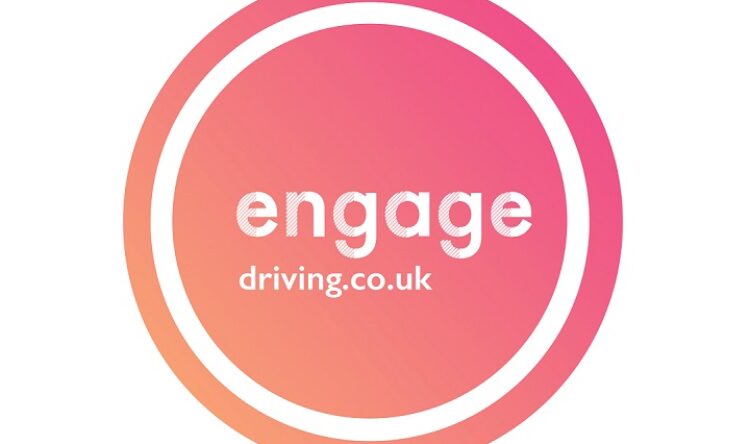Theoretically insufficient
Most drivers would fail to answer basic Theory Test questions, with young drivers the worst offenders
The driving theory test, a significant hurdle for over half of the candidates, is a crucial step in the journey to obtaining a license.
How do experienced drivers fare in comparison?
It’s a common belief that most of us could confidently tackle the questions, particularly on a multiple-choice questionnaire. What’s your take on this?
However, the results of new research reveal a concerning lack of academic success in. driving theory, underscoring the need for better awareness.
I’ve started so I’ll finish
When asked five basic Theory Test questions, 88% of UK drivers failed to answer correctly.
Independent Advisor Car Insurance asked the nation the following five common driving theory questions, sourced from Theory Test and representing essential road safety knowledge:
Q1. What, if anything, do you think triangular road signs indicate?
Q2. What lights, if any, do you think are appropriate to turn on when driving on the motorway at night, when there are cars ahead of you?
Q3. What, if anything, do you think the legal speed limit on a motorway is, if no signs indicate otherwise?
Q4. When driving on a wet road, what time gap, if any, do you think you need to leave between your car and the car in front of you?
Q5. What, if anything, do you think you should do if you have to quickly slow down when driving on the motorway?
The answer is…
The results:
In order to pass the real Theory Test pass, you need to achieve 86%.
Bearing this in mind, the survey considered a pass mark to be 80% to be adequate.
This equates to four out of five questions answered correctly.
Of all 2,010 drivers surveyed, only one in ten (11%) could answer all five common driving theory questions correctly.
With the passing threshold set at four out of five questions, an alarming 51% would have failed the driving test if retaken.
Even more surprising is the fact that the weakest age group was 17 to 24-year-olds.
Less than one in three (32%) provided four or more correct answers, with one in ten failing to get any correct.
Older wiser
The poor driving knowledge among novice drivers signals a troubling trend.
It goes against the idea that over time we forget – young drivers have only relatively recently had to pass the official Theory Test.
This also seems pertinent considering drivers aged 17 to 24 are four times more likely to be in serious crashes than those over 25, according to latest government reports.
Across all ages, one in five Brits don’t know triangular signs indicate warning signs
While 79% of British drivers correctly identified triangular road signs as warning signs, an alarming 21% failed to decipher the basic road sign.
Notably, one in five (20.75%) believe they should turn on main beam headlights when driving on the motorway at night.
This is not ‘dipped headlights’, but continuous full beam which can accidentally blind drivers ahead of them and pose a hazard for other road users.
Regional range
The UK regions with the worst driving know-how
|
Rank |
Region |
Average number of Qs correct |
Number of people who got <4 Qs correct |
% of people who got <4 Qs correct |
|
1 |
Greater London |
2.85 |
159 |
64.1% |
|
2 |
Northern Ireland |
3.24 |
32 |
58.2% |
|
3 |
North East |
3.16 |
41 |
56.2% |
|
4 |
North West |
3.18 |
123 |
55.4% |
|
5 |
Wales |
3.16 |
61 |
55.0% |
|
6 |
Yorkshire and the Humber |
3.20 |
85 |
51.8% |
|
7 |
East Midlands |
3.31 |
73 |
50.3% |
|
8 |
South East |
3.39 |
146 |
50.0% |
|
9 |
South West |
3.39 |
89 |
48.6% |
|
10 |
East of England |
3.37 |
84 |
47.5% |
|
11 |
West Midlands |
3.33 |
83 |
44.1% |
|
12 |
Scotland |
3.45 |
66 |
43.4% |
Capital gains
According to the survey, drivers in Greater London are the most in need of a refresher course.
Here, 64% are predicted to fail their driving test if retaken, averaging only two correct answers out of five.
Capital motorists are followed closely by those in Northern Ireland.
Perhaps green with naivety, it hosts the second highest level of concern about drivers on the road with 58% struggling to answer at least four driving theory questions correctly.
Heading to the North East isn’t much more comforting coming in as the third most concerning place.
Here, 56% of drivers lack basic driving knowledge.
On the other hand, heading to the top of the isles, Scotland boasts drivers the highest levels of road safety awareness.
Overall, the Scots boast 56% answering at least four questions correctly in the survey.
Time to revise
Whether you’re a seasoned driver or beginner, Connor Campbell, expert at Independent Advisor Car Insurance, further provided guidance on responsible driving and staying safe on the road:
“It’s shocking how many motorists don’t know the rules when it comes to the basics of safe driving practices,” states Connor Campbell, expert at Independent Advisor Car Insurance.
“Being behind the wheel entails significant responsibility, and risking the lives of other road users due to negligence is simply unacceptable.”
Continuing, Cambell reiterates some basic safe driving advice for the benefit of all motorists.
“You should adopt a defensive driving approach to minimise collision risks by focusing not only on your actions, but also your surroundings. That includes the behaviour of other drivers, pedestrians, and any obstacles on the road, not to mention adjusting your driving based on weather and road conditions.
“Look 15 seconds ahead and communicate your intentions clearly while driving – remember to signal when changing lanes even if you don’t see other cars nearby. Additionally, don’t rush, and maintain a safe following distance to allow for sudden stops or unforeseen manoeuvres.”
Cambell finishes by reiterating the adv ice that knowing the Highway Code is vital for road safety, understanding the rules of the road and best practice, but also for avoiding fixed penalty fines.
These hav seen a sharp rise since the code change in 2022.
“It’s also crucial to regularly revisit the Highway Code to ensure you are up-to-date with the latest road laws. This is vital for refreshing your knowledge and will help you avoid hefty fines and costly penalty points.”






